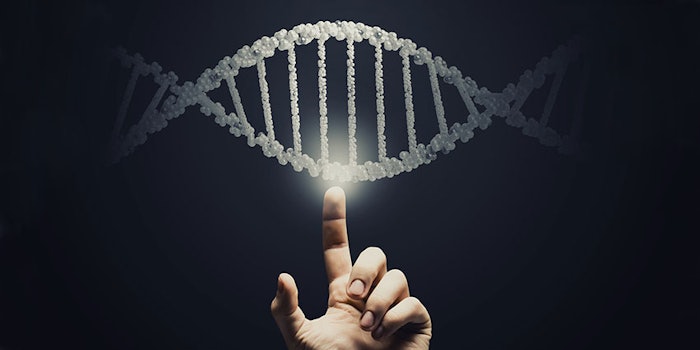
The genome and epigenome respectively comprise and affect DNA—but what do they consist of? In this installment of "Comparatively Speaking," industry expert Tony O'Lenick asks Howard Epstein, Ph.D., to help tackle the difference between the two and describe their roles in skin repair.
Genome
Genome refers to an organism’s complete set genetic information responsible for the construction and proper functioning of the organism. All life forms have a genome—in humans, it consists of the 23 pairs of chromosomes containing DNA—that are unique to each organism. In contrast, for many viruses, the genome consists of only RNA.
Sections of DNA form genes, which control the various characteristics of the organism. A gene is a segment or a portion of DNA, while the genome is the total DNA content in a cell. Thus, an organism has millions of genes but only a single genome.
DNA contains a chemical code that directs human growth, development and health. It consists of base pairs known as nucleotides adenine, cytosine, guanine and thymine. The human genome consists of 3.2 billion bases of DNA. Other organisms have different genome sizes.
In relation, while the study of the properties of genes is termed genetics, the study of the properties of the genome is termed genomics.
Epigenome
The term epigenome is derived from the Greek word epi, meaning above the genome. The epigenome consists of chemical compounds that modify or mark the genome in a way that alters the instructions given by the DNA.
Epigenetic factors are not part of the DNA, rather they have an impact on DNA and gene activation. These epigenetic factors attach to the DNA and can be passed on from cell to cell during cell division, and even from one generation to the next. While the DNA sequence does not change, epigenomic chemicals and proteins attached to the DNA can activate or deactivate the DNA signals for gene expression by controlling the production of proteins the DNA signals for.
Epigenetic factors appear to influence skin repair, skin response to excessive UV radiation and antioxidant activity. Natural products shown to have epigenetic effects include: green tea polyphenols, soy isoflavones, curcumin, vitamin A and lycopene. Epigenetic effects may help explain the health-promoting effect these materials have for the body, including the skin.









